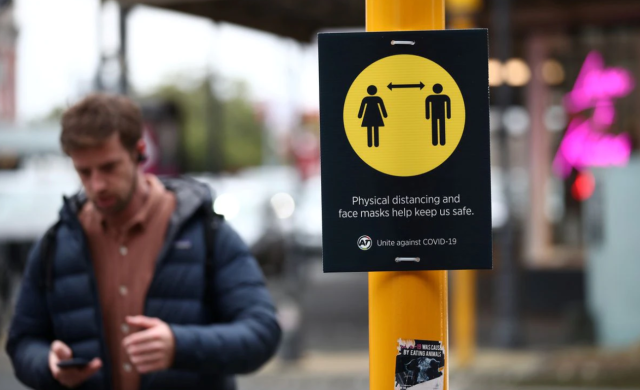New Zealanders are still reporting negative impacts on mental health and income from the coronavirus pandemic, despite living in one of the world's few countries to have largely returned to normal.
The Pacific island nation, which has had only about 2,200 cases and 26 deaths in a population of 5 million, enforced strict lockdowns and social distancing rules that helped to virtually eliminate the virus.
But it's now undergoing what economists call a 'K-shaped' recovery in which wealth inequalities are widening, compounded by surging property prices and a housing shortage. read more
The survey, released to Reuters, shows 46% of New Zealanders said they or a household member had trouble sleeping because of the spread of COVID-19, higher than the 43% recorded by the survey in June-July last year. About 40% continue to say they feel depressed.
"As one of the very few countries in the world that is largely back to 'normal', we would have expected mental health to improve," said Jagadish Thaker, senior lecturer at the School of Communication, Journalism & Marketing at Massey University in Wellington, who published the report.
"But our survey shows that a substantial proportion of the public is still struggling with economic and mental health issues."
The findings highlight the lasting impact of the pandemic on people's lives, raising concerns about other nations suffering a more severe crisis.


